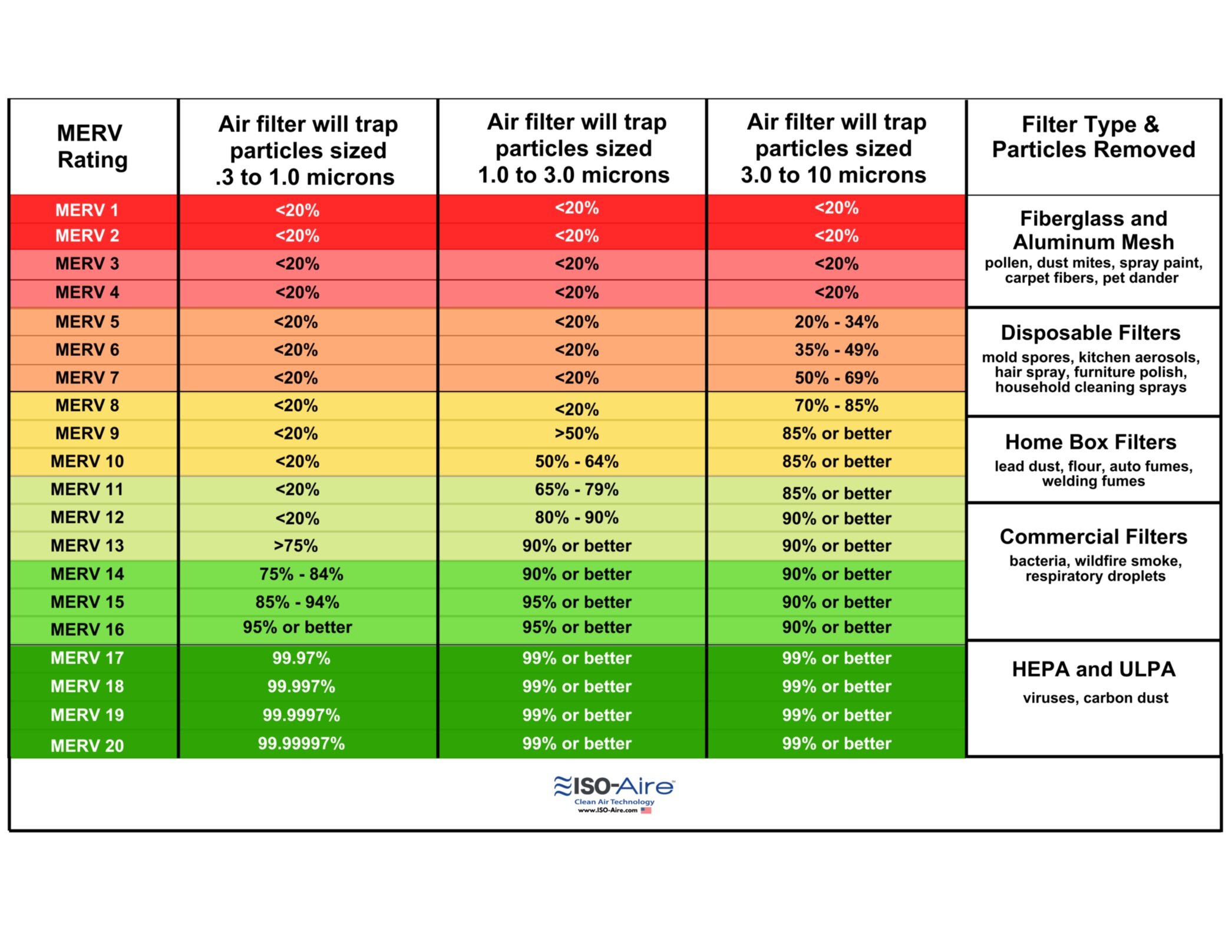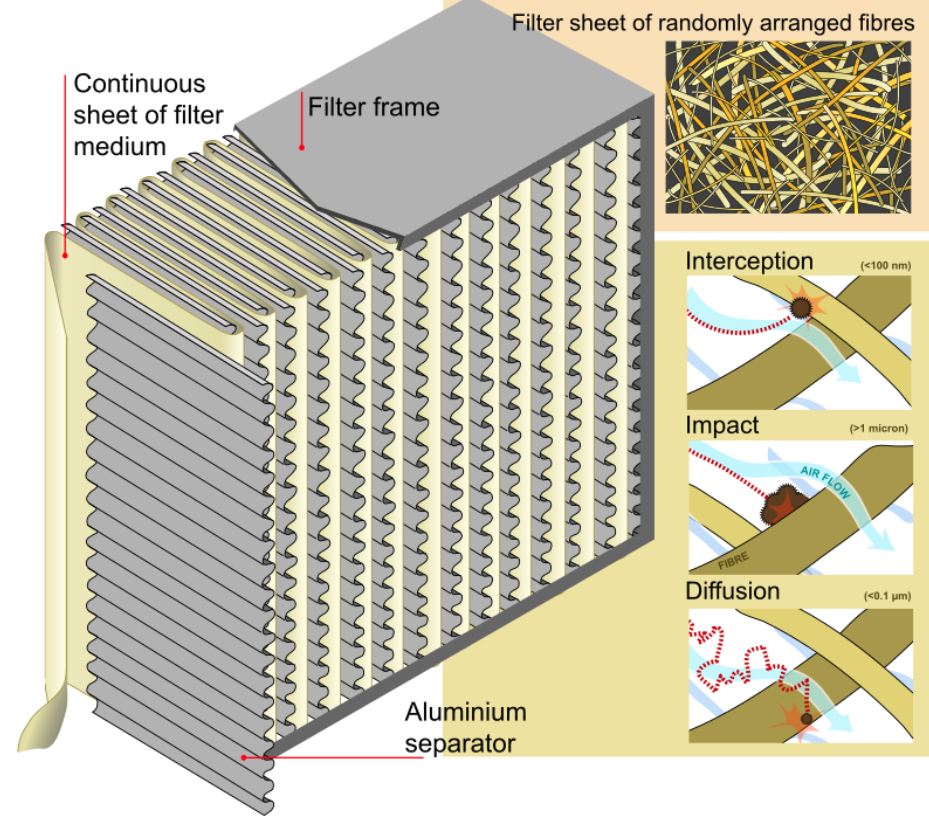What Is a HEPA Filter and How Does a HEPA Filter Work?
What Is a HEPA Filter?
A high-efficiency particulate air (HEPA) filter can remove 99.97% - 99.99% of airborne particles that are equal to, smaller or larger than 0.3 microns in size (EPA). The efficiency is rated based on the worst level possible, so think about it as 99.97% or BETTER.
HEPA filters are tested using air particles that are 0.3 micron size as those are the most difficult size for a HEPA filter to catch. HEPA filters are actually more efficient at capturing smaller-sized particles, like those the size of viruses (which on average are 0.1 microns), due to how these smaller size particles behave (see NASA research). This is based on MERV (Minimum Efficiency Reporting Values) ratings as determined by the American Society of Heating, Refrigeration, and Air-Conditioning Engineers (ASHRAE).
How Does a HEPA Filter Work?
A HEPA filter is not like any regular air filter you typically put in your home. HEPA filters are pleated mechanical air filters that have a considerable thickness in order to capture the particulates. The pleats create a mat of fibers that are randomly arranged. The random, dense arrangement of fibers in the HEPA filter help to catch a range of particle sizes. As air particles pass through the air filter, they are caught by three mechanisms: diffusion, interception, and impaction.
Diffusion occurs in a HEPA filter when the gas molecules that are smaller than 0.1 microns in size collide with each other and are delayed in passing through the filter. The delay will make it more likely for the next two mechanisms to occur for those smaller particles. Interception is when particles moving along the air stick to a fiber. Impaction, the third mechanism, is when the larger air particles embed directly into the fibers themselves.
In an attempt to extend the usage life of a HEPA, a pre-filter can be included in the set-up which helps to remove the larger particles, leaving the finer-sized particles to be caught by the HEPA filter. We know this at ISO-Aire, and all of our commercial air purifier units that we offer come with MERV-8 pre-filters to extend the life of the HEPA filter.
What Do ISO-Aire HEPA Air Purifiers Offer?
Watch: What is a HEPA filter and is it effective?
All ISO-Aire models come equipped with a HEPA filter, as well as two additional levels of air purification technology, including ozone-free bipolar ionization and germicidal UVC.
Watch: How does a HEPA filter work with my existing HVAC system?
Interested in investing in HEPA filtration? At ISO-Aire, we offer portable, low-maintenance HEPA air purifiers that offer medical-grade level of protection. Not only do our air purifiers come equipped with a 99.99% effective HEPA filter that has a lifespan of 5-6 years, they can also be ordered with ozone-free, UL 2998 certified bipolar ionization, and/or UVC sterilization. Interested in seeing which air purifier would be best for your space? Contact our team of experts today, and we will help you select which model and technology combination would be bets for you.




